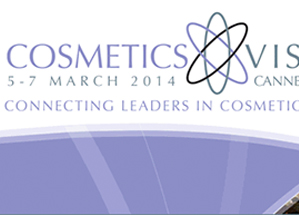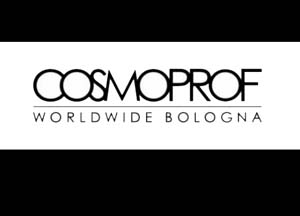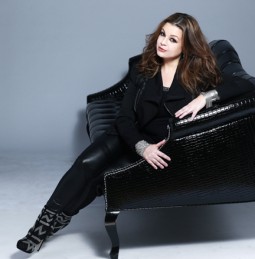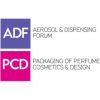Wow! I’ve been quoted in the New York Times! Very interesting article about animal products in skincare and facials (including bird poop and snail secretions!) Check it out!
Fertilizer for the Face?
by Alix Strauss
A RECENT Monday morning found me at Shizuka New York Day Spa in Midtown, getting the Geisha Facial, whose main ingredient is bird poop.
The treatment, I was told by Asako Nunose, the aesthetician, originated centuries ago when Japanese entertainers damaged their skin from the high lead level in their white makeup. As a remedy, they used a mask containing nightingale droppings that had enzymes said to break down dead skin cells.
For this modernized hourlong version, which costs $180, the excrement is sanitized under ultraviolet light, then mixed with rice bran, an exfoliant and brightener. Because the poop contains guanine, a nucleobase, it supposedly shines the skin as well.
I was calm as Ms. Nunose explained all of this while applying the poop powder, prepared and flown in from Japan. Then it brushed up against my lips and slipped into my mouth. I fought my desire to leave, and surprisingly the next morning my skin did glow.
When it comes to fighting aging, many of us will try anything.
“Though turning to animal ingredients isn’t the newest concept, it categorically popped out of nowhere,” said Jeanine Recckio, of Mirror Mirror Imagination Group, which forecasts beauty trends. “Consumers are gravitating toward their exotic or shock appeal.”
Some of these consumers are famous, like the Duchess of Cornwall and Gwyneth Paltrow, who have reportedly tried the Bee Venom mask, the creation of Deborah Mitchell, a beauty specialist. According to promotional literature, bee venom is said to freeze muscles, creating a Botox-like effect. And Mel Gibson has acknowledged using cow brains, or selegiline, a smelly yellow ointment that, in other forms, is used to treat Parkinson’s disease and depression. In his case, he has said that “it cleans the neurotransmitters and sharpens mental focus.”
According to Karen Grant, vice president and global beauty analyst of the NPD Marketing Group, cosmeceutical brands, which include biologically active ingredients like those derived from animals, were the fastest-growing segment of the prestige skin-care market in 2011.
Perhaps this is because some people trying high-tech ingredients (like peptides or StriVectin) or stem-cell technology or even purportedly natural and organic products have been disappointed.
“People discovered organic didn’t always mean organic, and marketed naturals could be harmful to one’s skin,” said Dr. Joshua Zeichner, director of cosmetic and clinical research in the dermatology department at Mount Sinai Hospital in New York. “Animal extracts are a new way of treating the skin, while offering a new definition of natural.”
Over the next several months, creatures like snails, bees and worms will inch their way from the great outdoors to human skin.
Wrinkle Butter with earthworm complex, a cream derived from earthworm excrement, went on the market at the end of December. An appearance on the show “The Doctors” increased sales, said Wayne Perry, the entrepreneur who invented it (as well as Sinus Buster, a popular nasal spray derived from chile peppers). The cream is sold in almost 500 health-food stores nationwide, and more earthworm-based products are planned.
And in May, after Sonya Dakar’s synthetic-snake-venom face cream became a best seller in 2009, Nate Dakar, the original company’s founder, released MicroVenom Daily Defense SPF 30 for the face and body. The product contains Syn-Ake, a synthetic snake venom that, according to the label, offers results similar to Ms. Mitchell’s bee mask. And last month, Dermelect Cosmeceuticals introduced its ME collection of anti-aging nail lacquers, an extension of its well-selling treatment line. The six polishes contain ProSina, a protein-peptide derived from New Zealand sheep’s wool, which, the company says, closely resembles protein found in nails.
“For many, a plant or a completely organic product isn’t satisfactory to women who want healing properties and a solution to their problems,” said Amos Lavian, founder of Dermelect Cosmeceuticals, who said he got the idea for the sheep’s wool from reading the New Zealand Journal of Medicine.
Drug companies have strict testing guidelines and different protocols from over-the-counter cosmetics. “We have very little data to know if those cosmetics work,” Dr. Zeichner said. “Perhaps all they do is moisturize. But these animal ingredients have some medical research behind them. All we can do is to wait and see how well they work.”
Masque*ology, a new mask-based skin-care line developed in South Korea, whose Cell Renewal Mask contains snail secretion, recently arrived at Sephora. “I’d been searching for an animal-extract product for a few years, but couldn’t find one that seemed legit,” said Carolyn Bojanowski, Sephora’s director of skin-care merchandising. Independent vendors with homegrown concepts don’t have conglomerates behind them, she said, “which can mean they don’t have testing or stability, so the product can be sketchy.”
After a week of smearing snail secretion and snake and bee venom — the worm poop was a bit too hard to commit to — over my face and body, my pores looked slightly smaller, and my skin felt marginally softer and moisturized. It wasn’t the visual transformation I was hoping for — I still require Botox for the massive crease in my forehead — but I didn’t break out either.
And this kind of stuff is a great conversation starter — for after dinner, of course.
_
Beauty branding expert and trend futurist Jeanine Recckio in the New York Times Style Section.













